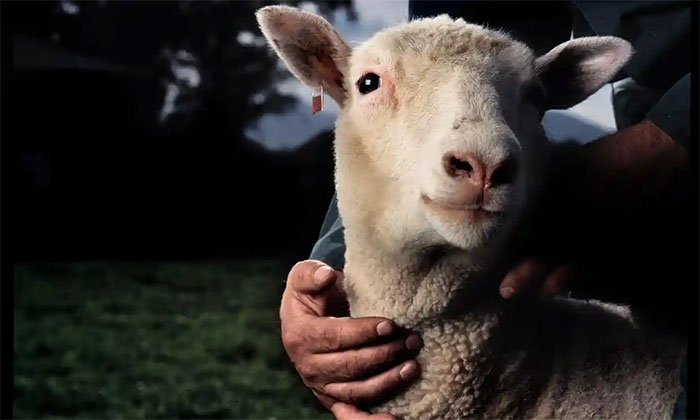Scientists are utilizing a genetically modified flock of sheep to identify a promising treatment method for a dangerous brain disease in young children.
Researchers from the UK and the US have stated that this work could aid in the development of drugs to alleviate Batten disease in infants, according to the Guardian.

Dolly the sheep created at the Roslin Institute, which contributed to this research. (Photo: Guardian).
This disease is inherited from parents carrying a rare recessive gene mutation. Children with two copies of this faulty gene begin to lose their vision, experience cognitive decline, and face motor skill issues, followed by seizures and early death.
“The impact on families is devastating,” said Professor Jonathan Cooper from the Washington University School of Medicine (St. Louis, USA) and one of the project leaders.
Initial experiments by the researchers indicated that mice affected by a form of Batten disease, known as CLN1 disease, could be treated with a specific enzyme.
“This is encouraging, but we need to test the treatment method in larger brains that resemble those of children more closely,” stated Professor Tom Wishart from the Roslin Institute at the University of Edinburgh.
The scientists involved in the project employed the Crispr-Cas9 gene editing technique to create a version of the faulty gene causing CLN1 disease in sheep.
Children cannot cope with this version of Batten disease because they lack an enzyme produced by healthy CLN1 genes. Without it, the functioning of lysosomes in the body, which process waste accumulating in cells, is impaired.
Research on mice revealed that injecting the missing enzyme into the brain led to significant improvements. However, the team noted that a direct transition to human trials is not practical or safe.
Experiments on six sheep bred from the Roslin flock with two faulty CLN1 genes provided answers. By calculating the appropriate dosage and the method of delivering the enzyme into the sheep’s brain, the research team observed improvements in the condition.
Scientists expressed that these results are promising, but emphasized that further research is needed over the next few years to optimize the treatment.
Previously, genetically modified pigs have also been used to treat diseases in humans. On January 10, David Bennett, a 57-year-old patient in the US, was able to breathe independently while still being connected to an artificial heart-lung machine to support a new heart, as reported by AP. This heart was sourced from genetically modified animals.


















































